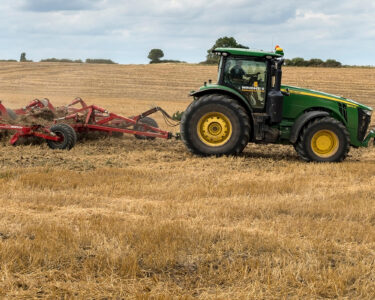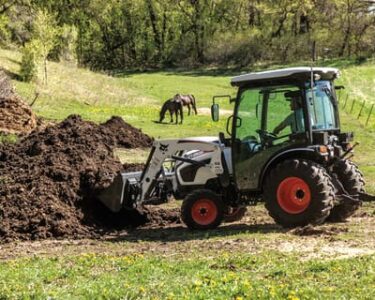Tractors are the backbone of modern agriculture, powering countless farms across the world. However, their significant role in agriculture also comes with environmental considerations. In this article, we will explore the environmental impact of tractors and discuss strategies to reduce their carbon footprint while maintaining efficiency and sustainability in farming practices.
Carbon Emissions and Fuel Efficiency
1. Diesel Engines
Many tractors are powered by diesel engines, which emit greenhouse gases such as carbon dioxide (CO2) and particulate matter. These emissions contribute to climate change and air quality issues.
Mitigation: Utilize tractors with modern, fuel-efficient engines that meet emission standards. Regular engine maintenance and proper tuning can also improve fuel efficiency.
2. Idling
Tractor idling, especially during non-productive periods, can waste fuel and contribute to unnecessary emissions. Idling engines also release harmful pollutants.
Mitigation: Encourage operators to turn off tractor engines during extended idle periods and invest in automatic shut-off systems.
Soil Health and Erosion
1. Soil Compaction
Heavy tractors can compact soil, reducing its porosity and negatively affecting root growth, water infiltration, and soil microbiota.
Mitigation: Use appropriately sized tractors for specific tasks and employ technologies like low-pressure tires to reduce soil compaction.
2. Erosion
Tractor operations, especially on sloping terrain, can contribute to soil erosion, leading to sediment runoff into water bodies.
Mitigation: Implement erosion control measures such as contour farming, grassed waterways, and cover cropping to minimize soil erosion.
Pesticide and Fertilizer Application
1. Overuse
Tractors equipped with pesticide and fertilizer applicators can lead to overuse of chemicals, which can harm ecosystems and water quality.
Mitigation: Embrace precision farming practices that use GPS-guided tractors to apply chemicals precisely where needed, reducing excess usage.
Noise Pollution
Tractors can generate significant noise pollution, impacting both farm workers and neighboring communities.
Mitigation: Invest in noise-reducing technologies and schedule tractor operations during non-sensitive hours to minimize noise disturbance.
Sustainability Initiatives
1. Renewable Fuels
Consider transitioning to renewable fuels like biodiesel or even exploring electric tractors powered by clean energy sources.
Impact: Renewable fuels and electric tractors can significantly reduce greenhouse gas emissions.
2. Carbon Offsetting
Support or engage in carbon offsetting initiatives, such as tree planting or renewable energy projects, to compensate for tractor emissions.
Impact: Carbon offsetting can help mitigate the environmental impact of tractor use.
Conclusion
Although tractors are essential to modern agriculture, it is impossible to overlook their environmental impact. Efficiency and sustainability must be balanced. Farmers may lessen the carbon footprint of tractors while still ensuring that they are effective tools for food production by adopting fuel-efficient technologies, avoiding soil compaction and erosion, optimizing chemical use, and investing in sustainability efforts. It’s a crucial step toward adopting farming methods that are eco-friendly and advantageous to both the environment and future generations.
FAQs
Q1. Are electric tractors a viable alternative to diesel-powered tractors?
A1. Electric tractors are emerging as a viable alternative, especially for certain farm operations. Their adoption is increasing as battery technology improves and becomes more affordable.
Q2. How can farmers determine the appropriate tractor size for their operations to reduce soil compaction?
A2. Farmers can consult with agricultural experts or use soil compaction sensors to assess the condition of their soil and select tractor sizes and equipment accordingly.
Q3. What are some government incentives for adopting sustainable tractor practices?
A3. Government incentives may include subsidies for purchasing cleaner tractors, tax credits for adopting renewable fuels, and grants for implementing sustainable farming practices.
Q4. Can tractor emissions be captured and reduced through emission control technologies?
A4. Yes, emission control technologies such as diesel particulate filters and selective catalytic reduction systems can help reduce tractor emissions, making them more environmentally friendly.



